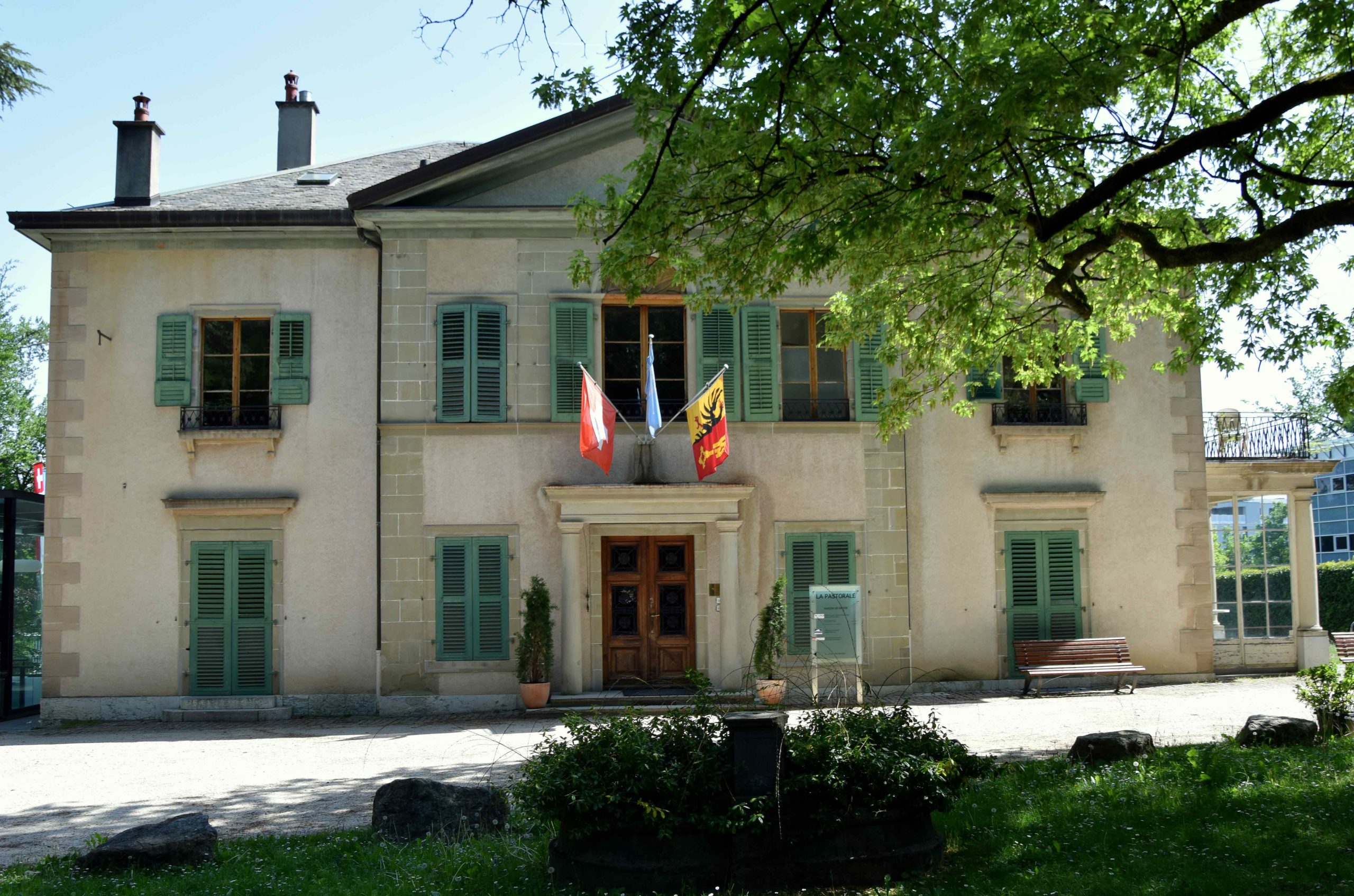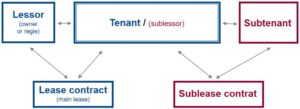Subletting contract
- Home
- Services
- Housing exchange: requests/offers and information
- Subletting contract
Subletting : principle and process
Subletting is a lease contract that binds the main tenant to the sub-tenant :
It is legal, but must imperatively be announced to the lessor. Article 262 al. 2 of the Code of Obligations (CO) provides that the lessor can only refuse his consent if there are valid reasons such as :
- if the tenant refuses to communicate the conditions of the sublease to him,
- if the conditions of the sublease are abusive,
- if the subletting presents major inconveniences for the lessor.
Be extremely suspicious of tempting accommodation offers, often with supporting photos, asking you to pay an advance to visit or reserve a property. Do not make any money transfers before you have been able to visit the property and draw up a proper lease agreement.
The sub-tenant is tolerated by the lessor and, vis-à-vis the latter, it is the tenant who assumes all the risks related to the rental (damage/payment of rent).
If the sublease is not announced to the lessor, the lessee is exposed to the risk, and consequently his sub-lessee also, of an early termination of the main lease contract, and this subject to 30 days’ notice for the end of a month (art. 257f par.3 CO).
However, the lessor who fortuitously learns of the existence of a sublease must first express his refusal in writing by summoning the tenant to comply with the legal requirements. If the rent increase is excessive, the extraordinary termination by the lessor will be authorized without having to provide proof of the unbearable nature of maintaining the lease (art. 266g al.1 and 262 al.2 let. c CO).
The increase is excessive if the under-rent exceeds the amount of the effective rent by more than 20%, taking into account the value of the development. An amendment to the rental contract for the separate rental of furniture is illegal.
The tenant must in principle make it plausible that he intends to return personally to the accommodation in the future and that it is therefore not a question of a transfer of tenant carried out in a disguised manner.
The legislator is also required to ensure that the tenant does not take advantage of the subletting to enrich himself and thus contribute to an artificial increase in rents. It is strongly recommended that the sub-tenant ensure, before signing the contract with the tenant, that the lessor has given his consent.
He will protect himself on the one hand from an early termination of the main lease and on the other hand from being the victim of an abuse.
Q: As a subtenant, should I subscribe to liability insurance (assurance RC) ?
A: Yes, it is recommended to have such insurance, even if the tenant is supposed to have one.
Q: The tenant asked me to pay a deposit of two months rent in cash, is this standard ?
A: The guarantee can be equivalent to up to three months rent, but should never be paid in cash. The guarantee will be blocked on a special bank account.
Q: Are they major inconvenience for the lessor in case of sublease ?
A: Some of them would be: if there is an over-occupation of the sublet, if the tenant is obviously no longer able to pay the rent, if the subtenant is using the rented property for another usage (massage parlour for example).
Q: During the lease period, a problem regarding a point not mentioned in the sublease contract occurs. What terms apply ?
A: If a point is not clearly stated in the lease, one should refer to the “General Conditions and Rental Rules and Practice” (Conditions Générales et Règles et Usages Locatifs) in force in the concerned canton.
Q: What is the usual notice period for cancelling a sublet ?
A: Generally, the notice of termination is 3 months before the end of the contract, but very often, a sublease usually being of short duration, a notice period of one month for the end of a month is agreed between the parties and specified in the sublease contract.
Other useful information for accommodation
Research process
Housing platform
Housing primarily for internationals

Contact the CAGI
Founded by the Swiss Confederation and the Republic and Canton of Geneva, the International Geneva Welcome Centre is the single entry point for the support and integration of employees of International Geneva and their families, NGOs and visiting delegates.

